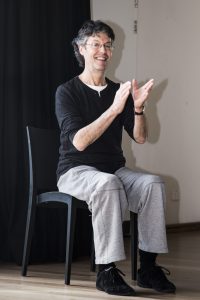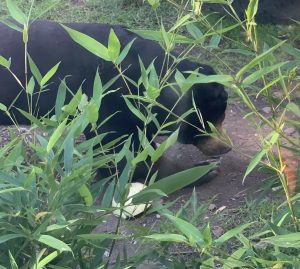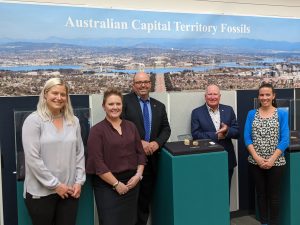Veteran journo still respects quarrelsome lot
By MARK WILLOUGHBY
JOURNALISTS should sell themselves better, according to journalist and author Chris Masters.
Masters has earned the highest awards the industry gives, and despite his concern for some poor standards, he admits he still likes, and—for the most part—admires journalists.
He delivered the 11th Annual Manning Clark Lecture at the National Library of Australia (4 March, 2010), on the subject ”Journalism: a career post mortem”.
Reflecting on his almost 43 years with the ABC, he confessed affection for the majority of journalists, despite their being “a quarrelsome lot and often absurdly competitive”.
He challenged popular opinion when he said the time had come for journalists to better communicate their worth, “to sell ourselves just a little”; to defend their craft, but to remain aware that “no one owns these stories, nor do we have—nor should we have—power over our own reputation”.
Most journalists, the ones he sees at work, “every day put public interest before personal gain”.
Speaking to NowUC, he said, “Some of us are more inclined to exploit rather than explain. I think journalists come to live with the opprobrium.”
Despite this common disapproval, he said, “there is plenty of proof of public benefit” arising from journalists’ work.
Masters was a reporter on the ABC’s Four Corners, for nearly 25 of his 43-year ABC career, between 1983 and 2008 — this makes him “the longest-serving reporter on Australia’s longest-running public affairs television program”, according to the ABC and his own website.
He still works in the media, as a contributing editor at the Daily Telegraph, and as an independent author. He has won numerous Walkley and other awards for his exemplary work on Four Corners, and for his 2006 book, Jonestown: the power and the myth of Alan Jones.
His work bears the mark of an adherence to true reporting, something he fears young reporters could lose sight of, “that is, identifying, researching and telling the story”. He worried that there was an importance being placed on ‘what to think’, rather than ‘how to think’; this might lead young journalists to “believe they will be honoured more for original analysis rather than an ability to uncover a fact”.
He was also worried about “a trend towards the forgiving of poorly researched commentary”, and that he believes journalists do better when “opinions are formed after we get out there and hunt down public wisdom”.
While he was not simply against commentary per se, he said he was “opposed to an absence of research in any reporting”.
“A lack of time is no excuse for resting hard opinion on soft research,” he said.
In the lecture he stressed the basic need for the development and promotion of research, narrative and explanatory skills in all journalists. There was a case for greater collaboration between the industry and the universities, to “drive research back into mainstream journalism”. This is something Masters says he has pushed for a number of years, especially now through his position on the Board of the Foundation for Public Interest Journalism, set up last year through Swinburne University’s Institute for Social Research.
University of Canberra’s Professor of Journalism, Matthew Ricketson, said he saw the initiative as an encouraging step into (what others, elsewhere, have described as) the “both very exciting and very scary” future of journalism practice.
In exploring new business models, the foundation could counter the very real problem facing the industry at present: exactly how to continue to pay for “the time, research and resources required to produce good quality journalism… the sort produced by Chris Masters and others of his kind,” Professor Ricketson said. That is, “long form, heavily investigated, carefully presented, investigative work that challenges people and organisations in positions of authority”.
Asked what role journalists’ could play in society, Masters said he saw “the journalist as a gatekeeper, developing socially useful skills—identifying what is important, applying thorough research, forming the narrative—and ultimately making what is important interesting. I like the idea of the industry operating first of all as a public service”.





Be the first to comment!